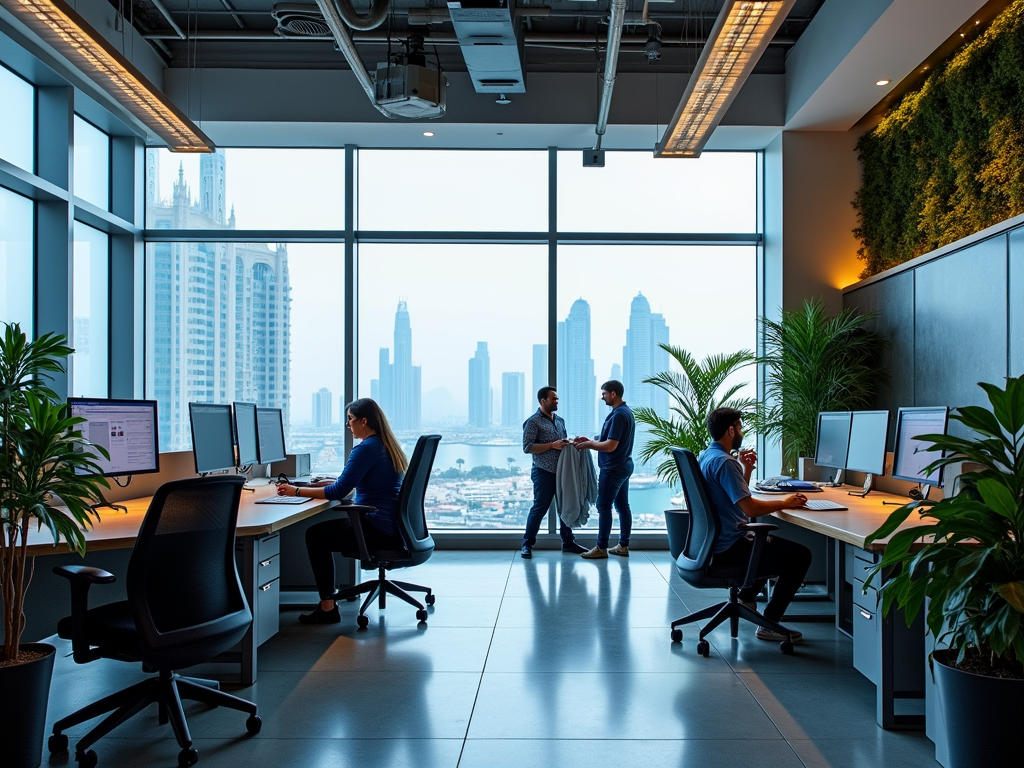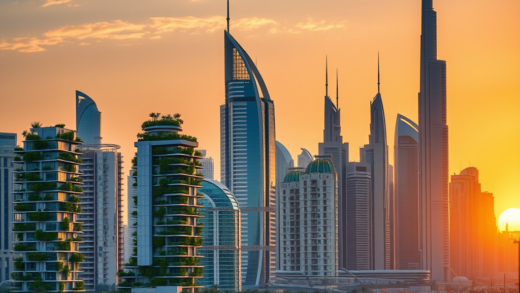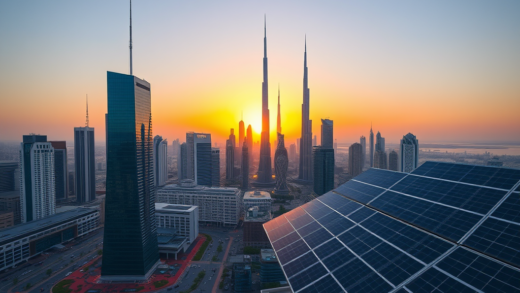Dubai’s real estate market has experienced a remarkable transformation over the past few decades, evolving from a modest trading hub into a global beacon of luxury living and commercial opportunities. This shift has not only reshaped the skyline of Dubai but has also had profound implications for businesses operating in the region. Increased investment, diverse property offerings, and a burgeoning economy have created a vibrant marketplace that continues to attract local and international firms alike.
The Growth of Dubai’s Real Estate Sector

The growth of Dubai’s real estate sector can be traced back to its strategic positioning as a commercial hub. Key factors that contributed to this growth include:
- Infrastructure Development: Major government investments in infrastructure have paved the way for world-class properties.
- Regulatory Framework: The establishment of freehold properties and foreign ownership regulations has encouraged international investment.
- Diverse Offerings: The market includes a variety of residential, commercial, and mixed-use developments, catering to diverse needs.
- Tourism Boost: An increase in tourism, marked by events like Expo 2020, has further driven demand for real estate.
- Attractive Lifestyle: The luxurious lifestyle associated with Dubai has enhanced its appeal as a place to live and conduct business.
As a result of these factors, the real estate sector has become a significant contributor to the emirate’s GDP, attracting substantial foreign direct investment (FDI).
Key Milestones in Dubai’s Real Estate Evolution

Dubai’s real estate journey is highlighted by several key milestones that brought notable change and enhancement to the market:
- The 2002 Land Reform: Allowed expatriates to own property in designated areas, marking a turning point for foreign investment.
- The Rise of Mega-Projects: Iconic developments such as Burj Khalifa, Palm Jumeirah, and Dubai Marina showcased the emirate’s ambition.
- Regulatory Reforms: Introduction of the Real Estate Regulatory Agency (RERA) to protect buyers’ interests and ensure transparency.
- Market Recovery: Post-2010 financial crisis, the market saw a robust recovery with increased demand and new projects.
- Expo 2020: Provided a significant boost in real estate demand, particularly in commercial spaces.
These milestones reflect the dynamic changes that have broadly enhanced the real estate landscape.
The transformation of Dubai’s real estate market has had significant repercussions for businesses. Firstly, the increased availability of commercial properties has allowed both startups and established companies to find suitable office spaces that meet their operational needs. Secondly, the diversity of districts—each catering to various sectors such as finance, technology, and retail—has enabled businesses to strategically locate themselves to maximize exposure and profit. Thirdly, the rental yields from commercial properties have been attractive, making real estate not just a living space but also a sound investment avenue for businesses.
Additionally, the booming real estate sector has facilitated networking and collaboration opportunities. Events, exhibitions, and conferences hosted in luxurious venues foster a mix of innovators, investors, and entrepreneurs, creating a robust business ecosystem. Furthermore, the modern amenities and infrastructure connected to these properties have enhanced the quality of business operations, leading to higher productivity and efficiency.
Итог
The evolution of Dubai’s real estate market has had lasting impacts on the very fabric of the business landscape in the region. From infrastructure advancements to regulatory evolutions, each development has contributed to an environment ripe with opportunity. The continuous influx of investments and the resulting commercial offerings ensure that businesses can thrive in Dubai, making it an appealing destination for entrepreneurs and larger enterprises alike. As the market continues to evolve, staying abreast of trends and changes will be crucial for those looking to secure a foothold in this dynamic environment.
Часто задаваемые вопросы
1. What are the key factors driving the growth of Dubai’s real estate market?
Key factors include infrastructure development, a strong regulatory framework, a diverse range of property offerings, a surge in tourism, and the luxury lifestyle associated with living in Dubai.
2. How has the real estate market affected foreign investment?
The ability for expatriates to own property has attracted significant foreign investment, particularly in residential and commercial sectors, making Dubai a competitive global market.
3. What role did Expo 2020 play in the real estate landscape?
Expo 2020 served as a catalyst for increased demand for properties, especially commercial spaces, due to the influx of tourists and businesses during the event.
4. Are there risks associated with investing in Dubai’s real estate market?
Like any investment, there are risks, including market fluctuations, changes in regulations, and economic factors that could affect property values and demand.
5. What types of businesses thrive in Dubai’s current real estate market?
Many types of businesses excel, especially in finance, technology, and tourism sectors, as the diverse commercial offerings and networking opportunities support various industries.


